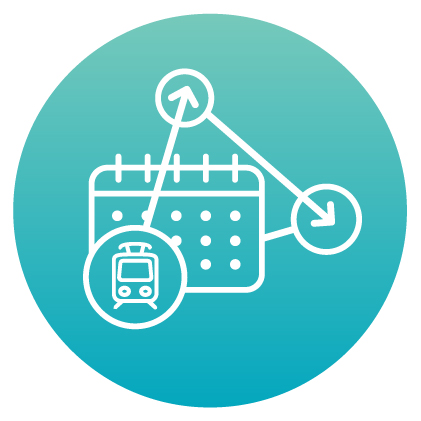The Birmingham 2022 Commonwealth Games: modernising rail networks without disrupting passengers

With millions of passenger journeys taking place every day on the UK rail network, improving and modernising the network to deliver more frequent, reliable and safe services without disrupting passengers can be tricky.
The Birmingham Centre for Railway Research and Education (BCRRE) can simulate the rail network, incorporating all the detail on the track, gradients, signalling and add the rolling stock characteristics such as mass, aerodynamic effects and traction system capabilities. This approach means that decisions can be tested, thousands of times faster than in real life. Whether testing the impact of new signalling, passenger dwell times at busy stations, the impact of tunnels on the aerodynamics of high-speed trains or the introduction of new rolling stock, BCRRE can create many different predictions for how these proposed improvements will affect services and what the impact on passengers will be.
Ahead of the Birmingham 2022 Commonwealth Games, BCRRE researchers created a ‘digital twin’ of the West Midlands rail network, enabling the numbers of passengers boarding and alighting trains at key stations associated with Games venues to be modelled. Large numbers of passengers getting on and off trains can delay scheduled departures and have knock-on effects for the wider rail network: managing the flow of passengers through stations can help to maintain service timings across the regional network at times of exceptional demand.
BCRRE researchers are also modelling digital scenarios for networks under construction, collaborating with HS2 to stress-test operational plans for the high-speed railway that will form the backbone of Britain’s transport network. The aim is to ensure smooth running of services from day one and the digital simulation will help to develop procedures for managing and recovering from an unplanned event, such as an early terminating service or a platform being unavailable.
November 2022
Back



